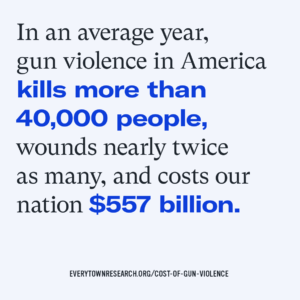By now, it’s widely recognized that requiring law enforcement officers to wear body cameras is a good way to begin addressing the national problem of excessive force and police killings of Black and brown Americans.
Still, questions about the usage of body cameras remain in the headlines because of the reluctance – or refusal – by some police departments, elected officials and courts to release body camera video in high-profile cases involving allegations of unjustified police violence against people of color.
The latest example is now playing out in North Carolina, where a judge last week ruled against immediately releasing video that shows police killing Andrew Brown Jr, a 42-year-old Black man, during an attempted arrest, Reuters reported April 29.
The district attorney in Brown’s case, Andrew Womble, who opposed releasing body-cam videos, put it colorfully last week: “What I do know is that you cannot swing a skunk in front of a group of people and then ask them not to smell it,” Reuters reported. (Nevermind that you could also say that no amount of additional evidence would disprove that skunks do often stink. The trial of former officer Derek Chauvin for George Floyd’s video-taped murder shows it’s possible to hold a fair trial even where the underlying crime is widely reported.)
More commonly, officials in deciding not to release footage have simply invoked a mantra of sorts, without more: “ongoing investigation.” The notion is that releasing video compromises the integrity of an ongoing criminal investigation.
“That’s the standard line we hear, and it’s not just police – prosecutors are probably more conservative” on this issue, said Michael White, a professor at Arizona State University’s School of Criminology and Criminal Justice and former co-director of training on body-camera policy for the Justice Department.
But the “ongoing investigation” mantra raises a number of questions, which often go unanswered.
First, what does it mean to say an investigation could be compromised by body-cam footage?
Is that assessment different when the subject is an on-duty cop, rather than a civilian suspect? Is there some degree of “compromise” that the justice system can tolerate, given the competing interest of the public’s right to information about their government’s activities?
Also, what are some examples of investigations that were compromised because of the release of video in a case where police brutality is alleged?
I asked officials with the International Association of Chiefs of Police and the national Fraternal Order of Police for examples of such compromised cases.
Larry James, FOP general counsel and former Columbus, Ohio, safety director, told me he couldn’t think of any. He added that if police departments have a practice of releasing video when it serves their interests, then they should also release videos that may implicate officers in misconduct.
The IACP didn’t respond to my inquiries.
I also asked Hank Sheinkopf, spokesperson for a coalition of law enforcement unions in New York, and Eugene O’Donnell, a former cop and professor at John Jay College of Criminal Justice, for examples of compromised investigations.
Sheinkopf didn’t respond to my questions.
O’Donnell, who opposes the use of body cameras generally, told me “examples are everywhere,” but did not cite a specific case in response to my question.
The use of body-cam footage is based on local laws modeled after the federal Freedom of Information Act, which presumes that release is generally appropriate because government works for the public. The underlying principle is that agencies can’t lawfully prevent public inspection of government records unless they can prove an exception to that general rule.
But some jurisdictions, including North Carolina, require court approval to release body-cam video, according to an April 30 Reuters report. In South Carolina, officials signed a bill requiring body cameras that simultaneously specifies that video “recorded by a body-worn camera is not a public record subject to disclosure under the Freedom of Information Act.”
For more on state body-cam video laws, watch our video.
The frequent reliance on the “ongoing investigation” line stems from one of the exceptions to the general FOIA rule: the risk of compromising an investigation. Caselaw offers definitions, even common categories, of such compromise.
Agencies are required to demonstrate how disclosure can reasonably be expected to interfere with a specific, reasonably foreseeable proceeding, like the arrest of a co-conspirator. And that interference can include effects of revealing the scope of an investigation or allowing opportunity for someone to destroy evidence, or fabricate alibis.
The exemptions are generally aimed at preventing litigants from gaining an unfair advantage in an eventual lawsuit – by getting access to police investigatory records. But, in most high-profile cases involving alleged abuse, the reasonably foreseeable litigant is a cop, and the police record is of “an event of which both parties would be aware, since they are the very subjects of the video,” as noted by Joseph Wenner, now a lawyer at Kellogg, Hansen, Todd, Figel & Frederick, in a 2016 law review article titled Who Watches the Watchmen’s Tape? Put differently, the usual considerations underlying the exception don’t apply in most cases where the subject of investigation is a cop accused of excessive force.
There is also FOIA case law recognizing a public interest in allegations of police misconduct, and courts are required to balance those considerations against the agency’s reasons for using the “ongoing investigation” exception to block the release of records.
The “ongoing investigation” reasoning “is part of a larger tradition in policing, generally, to be insular and not to share information, and I find that in 2021 that argument falls flat,” White said, adding that he is suspicious of some officials claims that investigations will take months even if they have video footage of the entire incident in question – an increasingly common event.
“I can imagine certain circumstances where an investigation could be affected, possibly,” by release of body-camera video in a police shooting, White said. “That could affect a witnesses’ recall, or maybe make them decide not to cooperate. But I think the demands by the public in the vast majority of these situations outweighs any concerns about an investigation being impaired.”
Perhaps that’s why officials typically don’t offer much more to the public than a passing reference to some ongoing investigation. It’s become a mantra they don’t actually have to explain.
Opinions expressed here are those of the author. Reuters News, under the Trust Principles, is committed to integrity, independence and freedom from bias.




